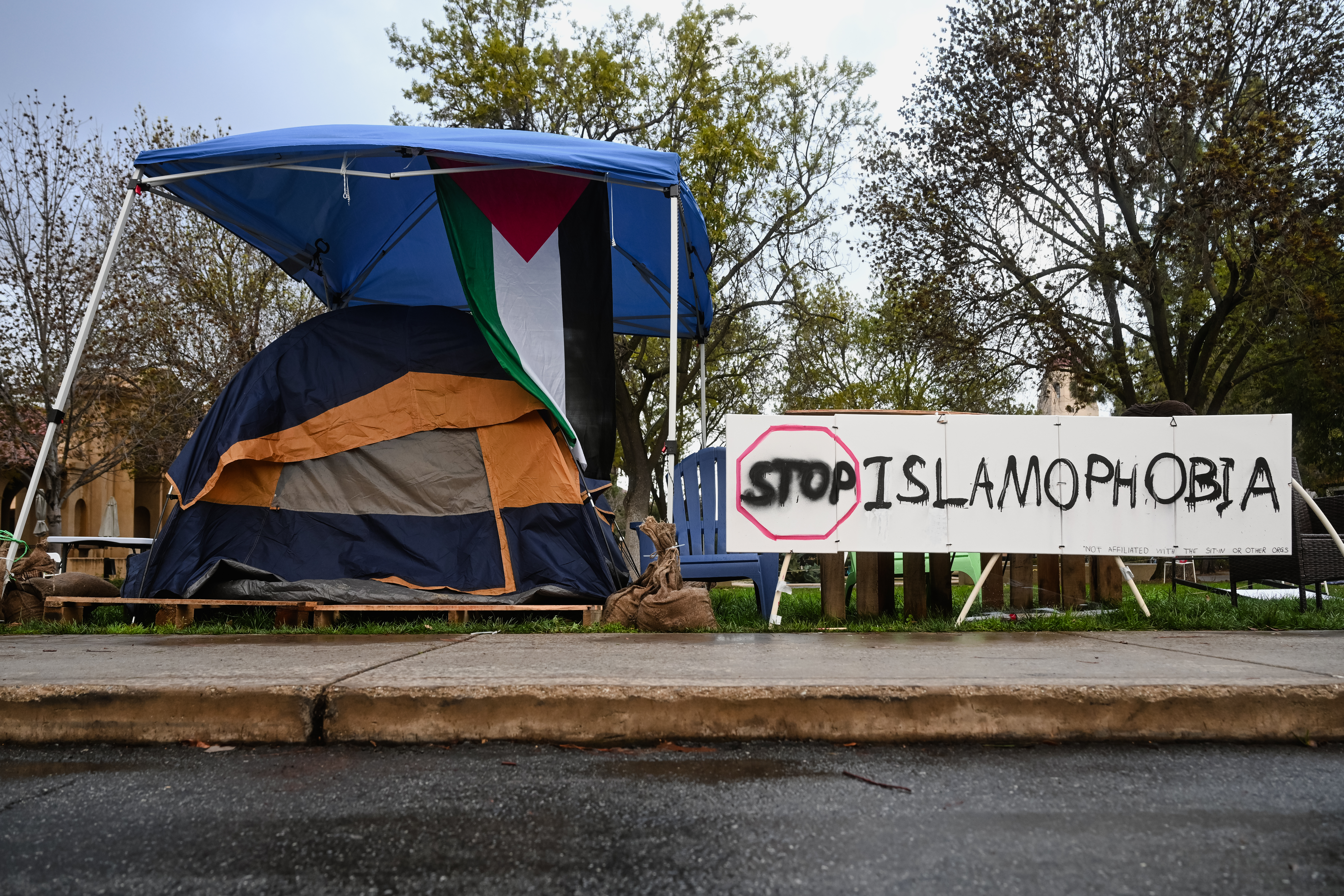In the wake of student protests surrounding the Israel-Gaza war, students and faculty at Stanford Law School (SLS) have launched a series of initiatives regarding the War on Terror and its connections to present-day Gaza.
On April 27, SLS held its annual Shaking the Foundations conference, which included a panel on the War on Terror’s harms, as well as a keynote address by a former detainee at Guantanamo Bay Prison Camp. Shafeen Pittal J.D. ’24 also initiated a War on Terror Reading Group involving professors and approximately 20 students.
Panel discussion on the War on Terror
The national security apparatus created by the War on Terror had significant ramifications for the modern condition of Palestine, said three lawyers at the conference’s panel discussion “How Did We Get Here? The War on Terror: Past and Current Harms.”
Wadie Said, professor at the University of Colorado School of Law, analyzed the War on Terror’s ramifications from a criminal law perspective. In the pre-9/11 world, he said, acts of terrorism were addressed similarly to other criminal acts, without racial profiling or the use of secret evidence. After the War on Terror, however, Said said those principles were abandoned.
“What happens when you declare a war?” Said asked. “The use of some powers on immigration enforcement [now] also affects the national security realm.”
Said pointed to the intensifying use of informants and racial profiling under the guise of national security. Arab, Muslim and Palestinian communities were disproportionately targeted and stigmatized.
Zoha Khalili, a staff attorney at Palestine Legal, explained that the United States’ designation of some groups as “terrorists” often contributes to human rights violations and hinders peaceful, progressive social movements.
“The terrorism label allows you to designate a certain set of actions that can be so far down the field that you don’t really need to think about standard principles, you don’t really need to think about humanity but you also don’t need to think about proportionality,” said Zahra Billoo, the executive director of the Council on American Islamic Relations (CAIR) San Francisco Bay Area. These actions include torture and ethnic detention, starvation and the destruction of hospitals and schools, Billoo added.
Law enforcement seems to treat Muslims and Arabs as “terrorists until proven innocent,” Billoo said. Billoo shared the story of Yasser Affifi, a young Muslim tracked by the FBI without a warrant. CAIR helped secure a Supreme Court victory affirming that the practice violated his Fourth Amendment rights.
Billoo called future lawyers in the audience to action. They are the “legal arm of the movement” and have the power to protect those who are peacefully protesting, she said.
Students initiate a War on Terror reading group
Pittal created the “Interrogating the War on Terror” reading group in April to raise awareness on the present-day legacies of the war. The group has since held three reading sessions led by SLS professors. She emphasizes that both the Shaking the Foundations Conference and her reading group reflect on how national policies discriminate against various Muslim communities.
“The point of the reading group really was to raise awareness about [the ramifications of the War on Terror] and start thinking about our roles as law students in remedying not only the victims of the War on Terror, but also the apparatus and legal doctrine that allowed it to happen,” Pittal said.
Participant Lauren Courtney J.D. ’25 saw the reading group as a unique opportunity to discuss social justice with law professors in small group settings.
“It is a perfect combination of both scholarly discussion of how academics have thought about these issues and conceptualize them in the legal context, but also lived human experiences and the real world consequences that the law has had,” Courtney said of the reading group.
Both Pittal and Courtney attended the Shaking the Foundations conference and said it expanded what they learned in reading sessions. For Courtney, the conference showcased the harm that many lawyers did in the post 9/11 landscape, but also reminded her that lawyers have the capacity to be change agents for good.
The reading group provided a different perspective than how SLS classes discuss the War on Terror. Through the group’s sessions, Courtney realized that law school classes should more thoroughly flesh out the consequences of legal scenarios involving the war, instead of mentioning them only in a footnote.
Courtney plans to be a public defender after graduation. The reading group reminded her of her responsibility to understand how the law can be distorted as she serves her clients.
For Pittal, the hardest part of her law school experience was realizing that many innocent victims are still living the consequences of the War on Terror over 20 years later, while public attention has been taken by more recent legal issues.
“Who are going to be the people that will care about those who have become invisible now?” Pittal said. “We’ve just moved on as the legal community without really confronting what happened.”
A previous version of this article incorrectly stated the name of the reading group. The Daily regrets this error.
